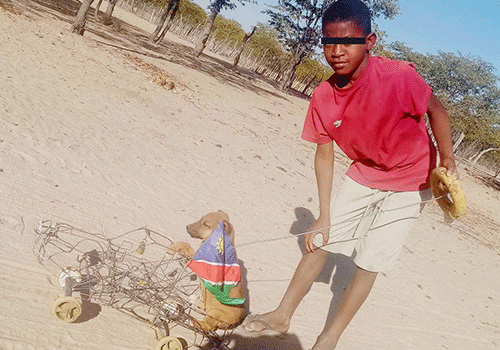Domestic dogs are responsible for 99% of cases of human rabies, the agriculture ministry has said, and most of these rabies cases are mainly in the Northern Communal Areas (NCAs).
“Human death due to rabies reported from the northern communal areas dropped from 23 cases in 2015 to 13 cases in 2016, six cases in 2017, one case in 2018 and zero cases in 2019 and two cases in 2020. Human rabies cases reported in 2021,
2022 were four and eight respectively, attributed
to the effects of Covid-19 and its restrictions,” outlined the ministry’s executive director
Ndiyakupi Nghituwamata yesterday.
Celebrated on 28 September each year, this year’s World Rabies Day theme is ‘All for 1, One Health for all’.
The ministry further said that mass dog
vaccination has been demonstrated to be the most effective approach towards the elimination of
dog mediated human rabies.
It commended the collective effort and collaboration from the respective line ministries as contributing to the reduction of human cases in Namibia. Nghituwamata said the ultimate goal is to eliminate dog-mediated rabies in a pursuit to save human lives and safeguard the wellbeing of susceptible livestock and wildlife against the lethal disease. “This mission is closely aligned with the National Rabies Control Strategy which is a comprehensive nationwide effort aimed at controlling the spread of rabies in both dogs and livestock,” stated Nghituwamata. The ministry noted that the goal is to eliminate dog-mediated rabies by the year 2030, aligning this with the global World Rabies Control Strategy, to achieve zero cases by 2023. Since the implementation of the National Rabies Control Strategy, significant progress has been made in controlling the disease in pets and livestock and humans particularly children.
The World Health Organisation says the theme further emphasises the importance of equality,
and strengthening overall health systems by ensuring that One Health is not for a select few but rather something that should be available to everyone.
It added: “By collaborating and joining forces across sectors, engaging communities and committing to sustain dog vaccination, together as one, they can work towards one goal to eliminate one disease to make One Health available to all – using rabies as the example.”
In 2017, a national rollout got underway in the Northern Communal Areas to reduce human rabies deaths through effective dog rabies
control, improve vaccination coverage in the dog population with an initial focus on rabies hot spots and secure timely post-exposure prophylaxis (PEP) for people suspected of being infected by a rabid animal.


